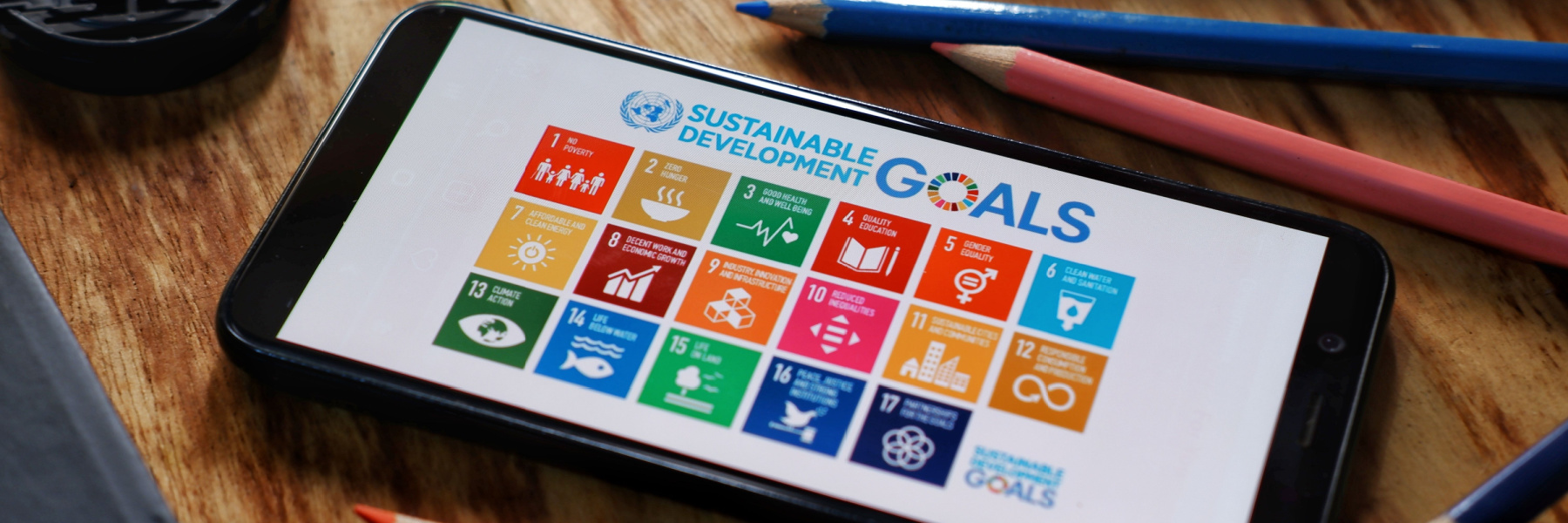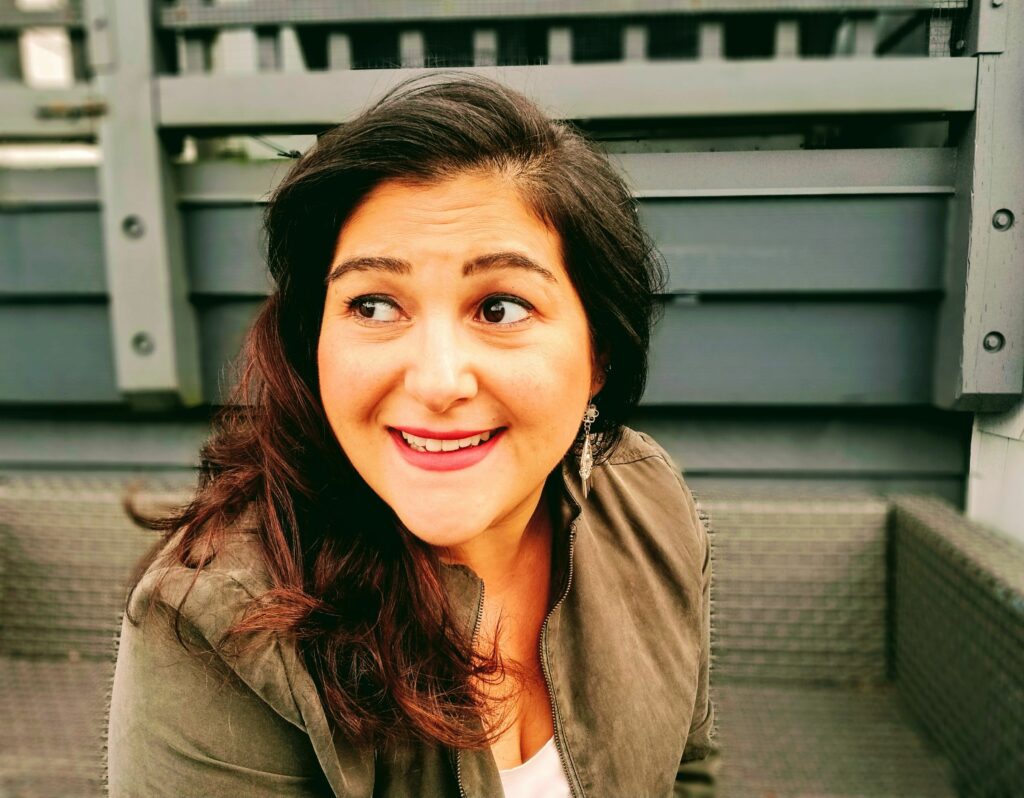
From the climate crisis to the next pandemic, how can individuals work together to solve complex global problems while ensuring the promotion of an equitable and sustainable world? Zeynep Güler Tuck, a producer, journalist, social entrepreneur and York alum will unpack these issues during Congress 2023.
The President’s Office at York University sat down with Güler Tuck to delve into what to expect at this engaging and thought-provoking session on June 1.
President’s Office: At Congress, you will moderate a panel discussion that aims to understand and address the United Nations Sustainable Development Goals (UN SDGs) through the lens of decolonization, equity, diversity and inclusion (DEDI). Why is this topic so timely and important right now?

Güler Tuck: For those who have been working toward these goals with organizations, NGOs, and institutions since the SDGs were introduced by world leaders in January 2016, these goals have either become second nature or have gone through a number of interpretations and iterations over the years. The same goes for DEDI. Especially for those who have been directly impacted by inequitable, colonial practices, policies and systems, this work has been ongoing for quite some time. However, the last decade has brought many more of us face-to-face with the kinds of disasters, pandemics, injustices and crises we might have only seen on CNN. For some, it took a crisis or emergency to happen right in their own backyards to realize the importance of centering our communities and their needs. Taking an intersectional approach to the SDGs with a DEDI lens is top of mind as a result of the social and environmental reckoning of recent years. The intersectional DEDI lens is long overdue, which has put the development goals at risk. It has never been more timely and important to address and take action toward prioritizing DEDI in the advancement of SDGs.
President’s Office: How are you advancing the SDGs in your personal and professional life? What are you hoping to learn from the panel?
Güler Tuck: Professionally, I’ve supported the SDGs through my work in the media and non-profit spaces. With Microsoft News, I collaborated with global news outlets to curate ethical story packages that raised awareness and over $1 million in funds for causes like COVID-19 relief, disaster recovery, racial justice, poverty, climate action, LGBTQ+ representation, and STEM education for girls. When Microsoft laid off MSN’s digital producers in the height of the pandemic due to automation and AI systems, I was one of them. I adapted to the change by starting my own social impact business to support organizations working in the gender equity space.
With non-profits, I have supported the economic advancement of equity-deserving entrepreneurs who run impact-driven startups in North America’s tech and innovation sector.
Personally, when it comes to SDGs and humanitarian aid, I sprung into action when the devastating earthquakes hit Turkiye and Syria in February 2023. While the Turkish community across the world was mourning, we knew we needed to act fast. I mobilized community organizations, private-sector partners, allies, neighbours and the Turkish Consulate in support of relief and recovery efforts. We continue to rely on this support as we fundraise and implement long-term projects that help earthquake survivors, including refugee families to Canada and child amputees.
For this panel, I’m eager to learn from each of the illustrious speakers about the ways organizations, institutions, and individuals have started to reframe the SDGs in the context of DEDI, and perhaps dive deeper into why it has taken this long to bring this intersectional approach to these global issues.
President’s Office: How has your experience as a York U student and now an alum prepared you to take on these challenges in your own way?
Güler Tuck: I didn’t realize until after I graduated that my experience at York had given me more than a higher education. While York taught me about the media landscape in North America, it also taught me a lesson in adapting to changes in the industry. I experienced these changes first-hand when the decline of print media met the mercurial rise of digital media, requiring me to transition from a role as the editor-in-chief of a magazine to the digital producer of an online content platform.
Though, my “a-ha” moment occurred when I realized that my BA in communications and sociology could lead me into purpose-driven work for social good. It was a revelation and came later in my career than I had expected. So, I hope more students in comms and humanities can make the connection sooner because we need all hands on deck.
The transition wasn’t overnight. I knew I wanted to be a storyteller, so I began building narratives in the sales pits of PR firms then devising content strategies in the boardrooms of the private sector. However, it wasn’t until I came head-to-head with challenges and barriers as a woman in tech – and saw many other women facing those same obstacles – that I recognized how storytelling and narrative-building could lead to change in the world. I began mentoring and championing other women in the field, speaking at conferences and volunteering with women in STEM organizations to help amplify their work. One of the highlights of my career was releasing the Gender Equity Roadmap with Women in Tech World in 2018. As the most extensive qualitative data set on the experiences of Canadian women in tech, it was based on research collected from 1,600-plus voices in 30-plus tech communities across Canada with the collaboration of 100-plus community and national partners. In regions like the Yukon, New Brunswick and northern Ontario, partnerships allowed us to cater action plans to advance the women and gender-diverse folks working in these areas.
Now, as I double down on my advocacy and DEDI work in line with the SDGs, I am grateful that I’ve been able to come back to York as a speaker, moderator and a stakeholder in the future of this great institution.
President’s Office: Congress will include thousands of scholars, students and experts in the social sciences and humanities. How will their perspectives, research and knowledge be critical to solving complex societal issues from pandemics and global health and climate change to political conflict and racism?
Güler Tuck: This is definitely a question that keeps me up at night. However, it starts with showing up. Whether virtually or in person, Congress facilitates a crucial opportunity for us to come together to spark dialogue, share stories, have difficult yet important conversations, and walk away with actionable ideas for the future. When we bring the right people together, the discourse can have a butterfly effect that can impact how we approach a number of critical environmental and social issues. I cannot speak directly to how Congress might help resolve political strife and conflict in our world, but I can speak to the importance of acting fast, as we speed toward 2030, to use opportunities like Congress 2023 to ideate community-first action plans at local, regional and global levels that can serve as roadmaps for governments, private sectors, civil societies and individuals to visualize their next steps.
President’s Office: What action do you hope students and scholars will take from the panel discussion, and from the experience of Congress?
Güler Tuck: Luckily, this is a question that gets me up in the morning. Understanding the full scope of the SDGs as a whole can be a lot for people to wrap their heads around in the context of their everyday lives. It’s not easy to find time to end poverty or fight injustice when you are rushing to get the kids off to school, running a small business, relocating to a new country, finishing your degree or living paycheck to paycheck. Distilling them down to the impact you and I can make in our local communities and neighbourhoods makes them more digestible. Then, once we see that change, we’ll be empowered to take on larger-scale projects. The head of World Wildlife Fund-Canada, Megan Leslie, had the perfect response when I asked her in an interview how we can reverse the damaging effects of the climate crisis. She suggested that simply planting a Black-Eyed Susan flower in your garden or on your balcony can trigger a chain of natural events that could lead to the creation of a micro-habitat for the animals in your neighbourhood. You can also support businesses owned by underrepresented founders, get involved with a neighbourhood fundraiser, or join one of your company’s ERGs. There are many ways to advance these development goals at the local level. It just takes showing up. By attending Congress, either virtually or in person, students and scholars will have taken a crucial first step toward these goals. All they have to do is keep up that momentum.
President’s Ofice: Anything else you wish to add?
Güler Tuck: I’m incredibly privileged to get to host this panel at Congress and want to thank all the incredible people who made it possible. It’s always been an honour to be an active part of the York U community. It all started with the Mid-Career Conversations Series, organized by the amazing team at the York U Alumni Engagement Office.
Finally, as a takeaway for Congress attendees, I encourage you to choose one or two of the development goals to focus your efforts on at the local level this year. We all need to get involved to reach these goals. It’s better if we do it together.
The panel “Understanding the United Nations Sustainable Development Goals (SDGS) through the lens of Decolonization, equity, diversity & Inclusion (DEDI) is taking place on Thursday, June 1, 10 to 11 a.m. and features panelists and experts: President & Vice-Chancellor Rhonda Lenton; Founder and Co-Director of Future Ancestors Larissa Crawford; Deputy Minister & Commissioner of Emergency Management Bernie Derible and York Associate Professor of Biology Sapna Sharma.
